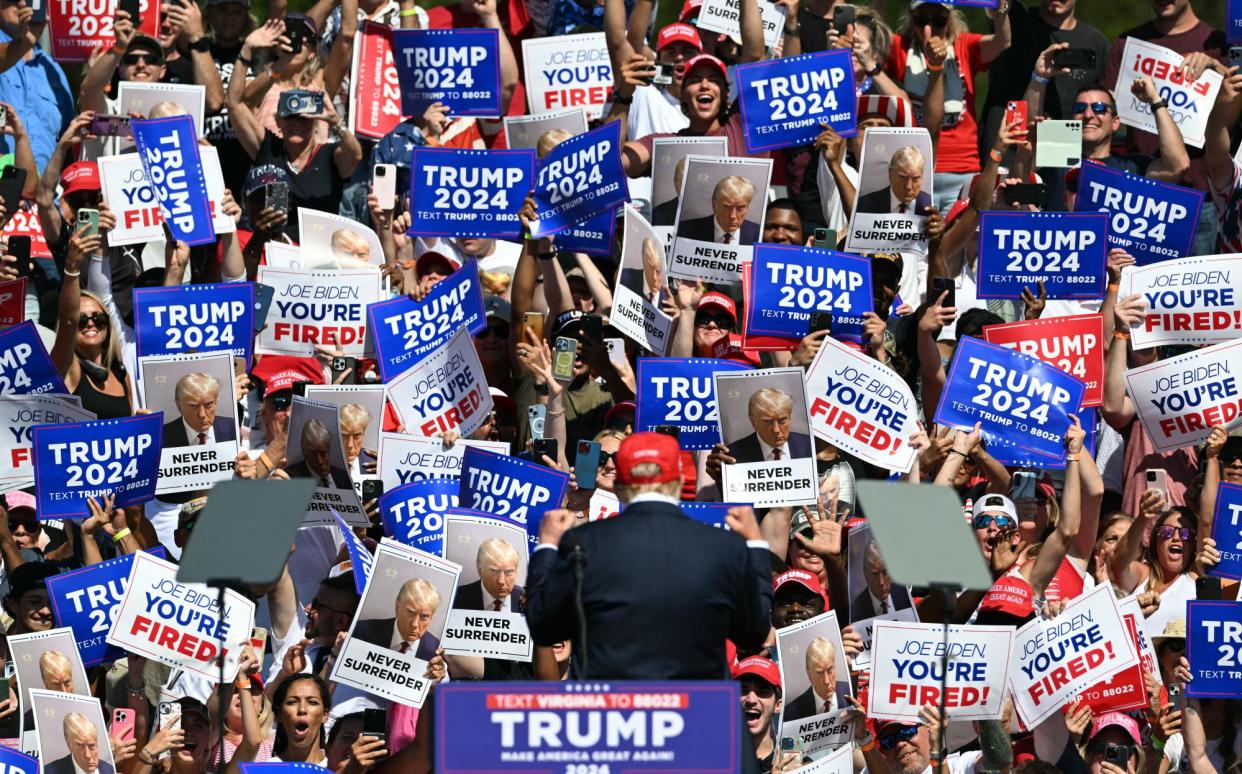Trump immunity ruling likely to gut parts of criminal prosecution trial

The US supreme court’s decision on Monday to confer broad immunity to former presidents is likely to eviscerate numerous parts of the criminal prosecution against Donald Trump over his efforts to overturn the results of the 2020 election.
The court remanded the case back to the presiding US district judge Tanya Chutkan to apply a three-part test to decide which actions were protected – but Chief Justice John Roberts preemptively made clear that some were definitively out.
On some of the closer calls, Roberts also gave suggestions on behalf of the majority conservative opinion, which could bear on Chutkan when she eventually weighs each allegation line by line and decides whether it can be introduced in any future trial.
Most crucially for the special counsel, Jack Smith, his prosecutors will not be able to introduce as evidence any acts deemed to be official, even as contextual information for jurors to show Trump’s intent.
Related: Was Donald Trump, as president, a king? The US supreme court thinks so | Moira Donegan
Trump is accused of overseeing a sprawling effort to subvert the results of the 2020 presidential election, including two counts of conspiring to obstruct the certification of the election results, conspiring to defraud the government and conspiring to disenfranchise voters.
The alleged illegal conduct came in five categories: Trump pressuring US justice department officials to open sham investigations into election fraud; Trump pressing his vice-president to return him to the White House; Trump trying to obstruct Congress from certifying the election; Trump giving a speech that led rioters to storm the US Capitol building and Trump’s plot to recruit fake electors .
Roberts undercut at least three of the five alleged categories in the opinion.
Trump’s interactions with justice department officials, including his threats to fire the then attorney general Jeffrey Rosen and the then acting deputy attorney general Richard Donoghue, were absolutely immune because overseeing the department was a core function, Roberts found.
As for Trump’s interactions with Pence, including pressuring him to reject electoral votes for Joe Biden in Congress on January 6, were presumptively immune because presidential discussions about vice-presidential responsibility were part of the job.
The remaining allegations, about Trump’s other attempts to obstruct Congress’s certification, Trump’s speech that led rioters to storm the US Capitol building, and his efforts to organize fake slates of electors in part by spreading false claims, were left up to Chutkan.
But even then, Roberts weighed in on a key conspiracy charge against Trump: obstruction of an official proceeding before Congress.
In the first footnote in the majority opinion, Roberts instructed Chutkan to apply the supreme court’s determination in a previous, related ruling about the applicability of the obstruction statute when prosecuting January 6-related crimes.
The ruling in Fischer v United States, handed down last week, held that the obstruction statute could only be used to prosecute crimes that impaired the integrity or the availability of documents.
The footnote appeared to be a clear warning to Chutkan that she could not use Trump calling up Republican members of Congress on January 6 and pressuring them to continue delaying the certification of the election results after the Capitol riot temporarily halted proceedings.
After all is said and done, prosecutors may be left with only Trump’s plot to recruit fake electors – which is in many ways a circumstantial case about the extent of his personal knowledge – Trump’s speech on January 6 and some private conversations.
The biggest blow to prosecutors may be the inability to present any of the official acts at trial, but the reasoning for it was not revolutionary.
In many ways, the new rule set by the supreme court that precluded evidence cannot be brought at trial, mirrored how federal courts apply other privilege protections, such as the speech and debate clause that makes acts by members of Congress done in an official capacity immune from prosecution.
Under the speech and debate clause, protected communications do not come into contextual evidence because they are litigated out during the criminal investigation stage on a line-by-line basis. They are never even presented to a grand jury when it considers indicting a defendant.


